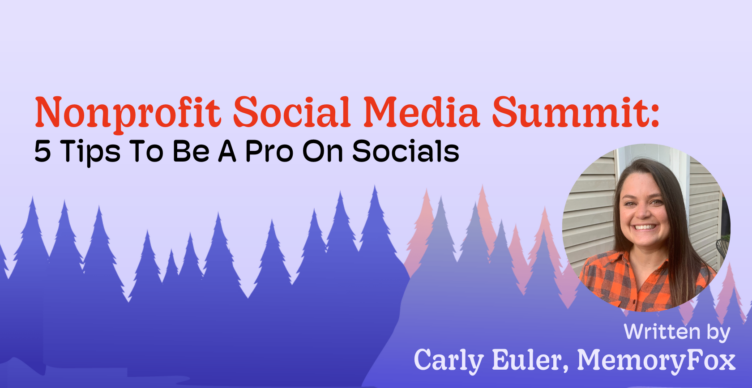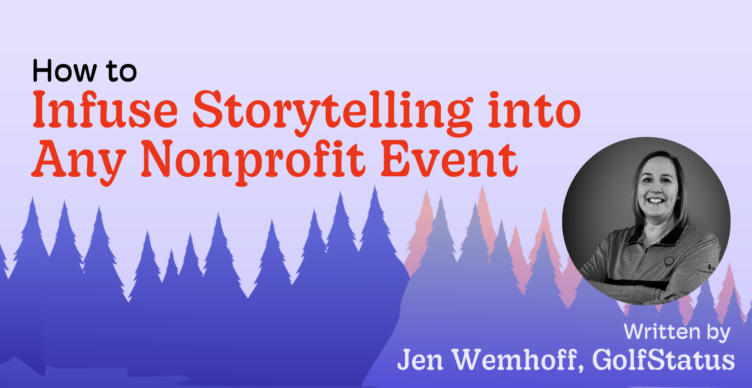Email Marketing & Fundraising, Storytelling Strategy
4 Ways to Establish Trust With Nonprofit Marketing
Nonprofits rely on trust to thrive. They need supporters to feel comfortable donating their time, money, and energy to a cause and be confident that those contributions will be used wisely to make the biggest impact possible.
In 2024, trust in nonprofits rebounded by 5 points, increasing to 57%—great news for the sector. However, there is still plenty of room for growth and clear paths forward. In addition to deepening relationships with donors and offering firsthand experience through volunteering, nonprofits can boost trust by maintaining financial transparency, adhering to ethical guidelines, and communicating the tangible impact of their work.
Through this guide, we’ll help you navigate these pathways and enhance your nonprofit’s trustworthiness with ethical, transparent marketing strategies. Let’s get started!
1. Take an Ethical Approach
Your organization exists to do good and promote the interests and well-being of your beneficiaries. This is why it’s so important to employ ethical storytelling and marketing practices when promoting your mission.
An ethical approach infuses honesty and empathy into the storytelling and communications processes to help prevent your nonprofit from accidentally causing harm to its community. Some of the principles of ethical storytelling include:
- Choosing strength-based terms. Strength-based language focuses on a person or group’s strengths and abilities (the opposite is deficit-based language, which focuses on weaknesses and deficiencies). For example, you might say “opportunities” rather than “problems.” Create a “this not that”-style list of these terms to ensure staff consistently use strength-based language in impact stories and other communications.
- Respecting individuals’ dignity. Portray individuals with respect and dignity, painting them as full human beings with strengths, resilience, and agency (rather than reducing these individuals to victims to serve a narrative).
- Prioritizing authenticity and accuracy. Tell stories that reflect real, lived experiences without exaggerating or sensationalizing the story for the sake of engaging supporters. Allow featured individuals to review stories before launching them, and ask for consent before using their real names and photos in your content.
- Regularly reflecting on your practices. The definitions of acceptable, just, and appropriate storytelling can and will change over time. Pay close attention to these changes and react accordingly. Always listen to the voices of those impacted by your issue first.
Ensure the marketing tools and strategies you use are ethical and have supporters’ best interests in mind. For example, robust data security is crucial when it comes to digital marketing—after all, donors will only want to support an organization if they know that their sensitive information will remain private and safe.
2. Use Authentic, Engaging Storytelling Techniques
Allegiance Group + Pursuant recommends showing your supporters exactly where their donations go to spur more gift-giving—the more concrete and detailed, the better. Telling real stories about your work and beneficiaries is a great way to communicate the impact of donors’ support. Seeing the faces, names, and words of those who benefit from your work adds a layer of authenticity and emotional impact that is difficult to achieve otherwise.
While keeping the ethical practices we discussed previously in mind, some of the ways to leverage nonprofit storytelling to foster trust include:
- Using direct quotes. Draw focus and give power to your community’s voices by incorporating exact quotes into your stories. Adding personal details like names and photos can also be impactful (but only if individuals are willing and doing so wouldn’t put them at risk).
- Following a complete narrative structure. Without changing the facts, draw on classic narrative structures like the five-act structure when drafting your story. Provide background on the subject, detail the challenges or struggles they’ve encountered, explain how they overcame obstacles with your help, and end with a satisfying, hopeful conclusion.
- Adding data and impact metrics. Individual stories tell of impactful moments and show how far helping just one person can go. Data helps you show that you can achieve that impact on a larger scale. Including metrics in your stories also adds a layer of credibility for logic-oriented supporters who enjoy a feel-good story but are motivated to act by hard numbers.
Use these tips to balance authenticity with compelling storytelling. Achieving this balance allows you to elicit emotional responses that drive action from supporters while staying committed to the ethical approach you’ve established.
3. Provide Clear & Honest Impact Updates
There is one key piece of information most supporters are looking for: where is the money going? A clear answer to this will go far in strengthening their trust in your organization.
Sharing impact updates and a detailed annual impact report is a great way to communicate the tangible ways that supporters’ contributions are helping the community you serve. In these impact-focused campaigns, include information like:
- A summary of how you’ve used donations, such as an infographic breaking down your operational expenses, program costs, and funding sources.
- The impact that specific dollar amounts or other contributions achieved (e.g., “Contributions to our sustainer program in July helped our shelter accommodate an influx of 20 new animals!”).
- Success stories and testimonials that illustrate positive outcomes.
- Evidence that your nonprofit uses data to effectively allocate resources (e.g., include details from your nonprofit marketing plan that highlight the use of data-backed decisions and strategies).
- Calls to action that inspire readers to make a contribution that will boost your impact even more.
As Bloomerang’s guide to donor stewardship explains, communicating impact is a crucial part of donor stewardship. It not only builds trust but also provides a space for your nonprofit to encourage deeper engagement. Over time, this will increase retention, improve donor relationships, and even motivate donors to recommend your nonprofit to others.
4. Collect & Act On Feedback
When supporters donate their money, time, and resources to your cause, they become stakeholders. They’re invested in your success and want to help you make a difference. But as stakeholders, they also deserve a chance to provide feedback and suggestions that can make your organization better.
In addition to sharing personalized thank-you messages, you should show that you value supporters by regularly requesting feedback on your marketing strategies, programming, supporter experiences, and more. Ask how trustworthy and transparent supporters find your nonprofit and prompt them to give you ways to improve.
Consider using a variety of formats to collect feedback—for example, one-on-one interviews can provide extremely detailed information and give you the chance to ask clarifying questions. However, some supporters may feel more comfortable being honest through anonymous surveys.
Open and honest communication is essential for your nonprofit to build trust with your donors. You have to consistently show that you’re doing the work, making good on your promises, and putting their contributions to good use. With the right marketing strategies, you can effectively communicate all of the reasons your nonprofit is deserving of supporters’ ongoing trust and support.

About the Author
Kim Richardson
Associate VP of Client Strategy, Allegiance Group + Pursuant
Kim joined Allegiance Group + Pursuant, a fundraising and marketing agency, exclusively serving the nonprofit sector in 2012. In her role, Kim leads cross-channel fundraising strategy and program execution across multiple clients in the Faith, General Non-Profit, and Higher Education verticals. Kim has consistently met and exceeded client expectations—leading several of her clients in double-digit, year-over-year increases. Before joining Allegiance Group + Pursuant, Kim provided marketing and fundraising consulting services to nonprofits and small businesses and worked for more than 15 years in corporate marketing and sales with four of America’s beloved consumer brands.




